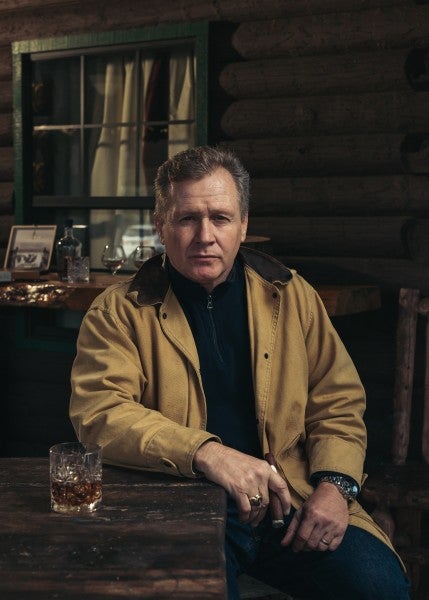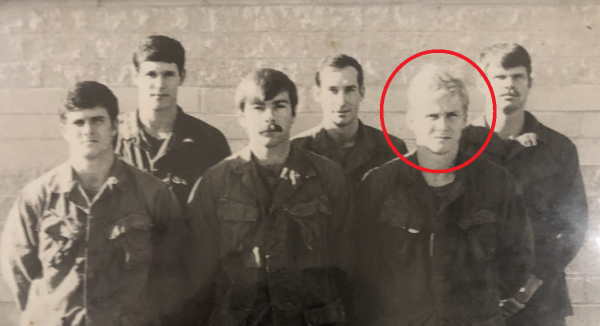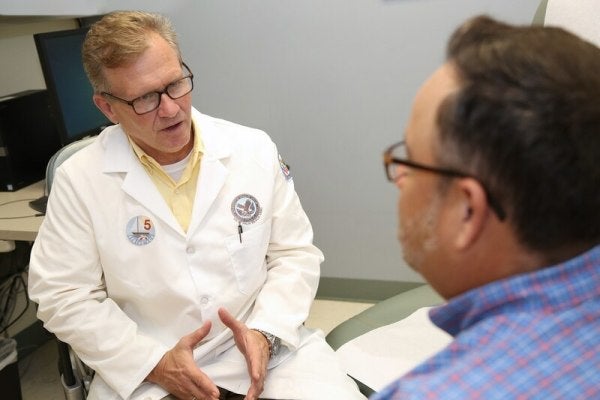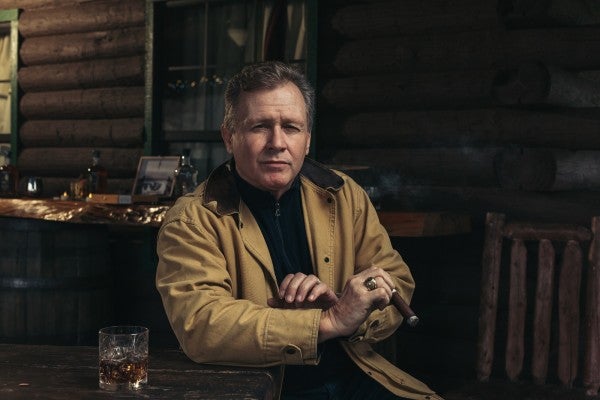
If there’s one thing to remember in combat it’s this: Whatever you do, don’t panic.
Norm Hooten knows this better than most.
Nearly 27 years ago, Hooten and other Delta Force soldiers, as well as U.S. Army Rangers, were fighting for survival during the Battle of Mogadishu in Somalia. Cut off, outnumbered, and surrounded, the situation might have seemed hopeless for the American troops on the ground.
“It’s never as good as it seems and it’s never as bad as it seems, but keep your head and there’s always a way out,” said Hooten, who was portrayed by actor Eric Bana in Black Hawk Down, Ridley Scott’s 2001 military drama about the battle.
“That’s the most important thing: Keep your head, don’t panic. Never ever panic, it’s the worst thing you can do.”
(Editor’s note: This article was originally published on Aug. 13, 2020.)
In the summer of 1993, a contingent of U.S. Army Rangers and Delta Force soldiers were dispatched to Mogadishu as part of a task force to capture or kill Mohamed Farrah Aidid, a Somali warlord responsible for numerous civilian deaths and human rights violations.
On Oct. 3 of that year, the task force had its chance to deal a decisive blow. Though Aidid was believed to be out of the country, his top lieutenants were going to be meeting in person, and so Operation Gothic Serpent was launched. The mission was to assault the building where Aidid’s men were meeting, seize them, load them into trucks, and then get the hell out before anyone was the wiser.
If everything went according to plan, it would’ve been all over within an hour. However, after a Black Hawk helicopter was shot down, it led to a chain reaction of events that transformed the operation into a running battle through enemy-occupied streets that stretched between two days, leaving 18 Americans dead, dozens wounded, and hundreds of Somali militants killed.
RELATED: This video captures the ‘catastrophic impact’ that kicked off the fierce ‘Black Hawk Down’ mission
Hooten has long since put his uniform away, though, in many ways, he still serves — he works as a pharmacist with the Department of Veterans Affairs as a way to “help the kinds of people I had worked with in the military for over 20 years,” he said.
After enlisting in the Army in 1980 and serving with 5th Special Forces Group, Hooten joined Delta Force in 1987, where he remained until retiring as a master sergeant in 2001. During his career, he served across the globe, running counter narco-terrorism operations in South and Central America, to missions in Lebanon, Jordan, as well as the Balkans.
These days, when he’s not working at the VA, he makes and sells his own cigars through Hooten Young, a company he launched with his long-time friend Tim Young. They recently announced a 12-year-aged whiskey that they specifically crafted to pair with their stogies.

“We decided to make our own whiskey because we just wanted something that went well with cigars,” Hooten told Task & Purpose. “We weren’t finding a lot of things that paired well with our cigars, so we decided to do our own thing.”
Task & Purpose recently had a chance to speak with Hooten, who’s very much the military’s version of the most interesting man alive. After a storied career that spanned two decades over multiple continents that saw him participating in some of the most intense combat operations of the ’90s, he now spends his retirement helping out other vets and smoking his own brand of cigars while sipping on his own brand of whiskey.
So, we decided to barrage Hooten with the kinds of questions only a veteran would ask.
The following interview has been lightly edited for clarity and style.
Task & Purpose: Now, I understand that you probably can’t or won’t go into a lot of detail on what you did in Delta Force, but can you tell me what it is like to serve in that community? What are some things that nobody knows or realizes about Delta?
Norm Hooten: The things that I look back on, when I was a young guy contemplating going over to Delta, you know, I thought ‘I’m gonna be over with a bunch of guys that look like they came out of the NFL, and they’re gonna be these superb athletes, and that’s kind of what separates them from everybody else.’
But I got over there and they were certainly physical specimens, but really what set them apart, and what I think was the biggest adjustment that I had to make when I was over there, was the work ethic that they have and the pace at which they operate.
When you were in a regular Army unit back then, you could go on a deployment, come home and have a little time before you go on the next deployment. You could kind of relax a little bit. [With Delta] there was never, ever, in the 15 years I spent in that unit, there was a never a day that I went home where I didn’t check to make sure my gear was packed, that my weapons were ready to go, because at any minute you could be called out.
So it was just the stress of being on what we called ‘the short string’ all the time, where you have got to be ready — which means you have to be physically fit all the time; you have to be up on your marksmanship, and all your tactics have to be straight, and you can never let your guard down. That is what, I think, separates them from every other unit I’ve ever worked with.
And now, I know that there’s a lot of people out there that say ‘well, I’m just as good as Delta Force,’ but I’ll tell ya, I’ve worked with every one of them and nobody maintains the lifestyle that those guys maintain. Nobody.

Personally, how did you balance that stress and op-tempo?
You know, I really worked hard to get there, and I was very proud of the people that I worked with. I really truly loved those guys and never wanted to let them down, so every day of my life, I had to focus on what I could to make sure I was never going to be the guy that let them down.
When I first got there I was single, so I didn’t have the burden of a wife and kids. A lot of guys had families, and when you’re gone 300 days a year, and even when you’re home, you’re not really home, because you’re training.
It’s very very difficult for families, and so I think it was beneficial for me to be single for the first eight years of my life there, and I just adapted to it. I had very good leadership, who dated back to special operations in Vietnam and they really taught me how to manage my life, and I think the trick is: you just don’t let things get out ahead of you so that you’re playing catchup. You always try to be ahead of what’s coming next.
Okay, so you work in the medical field now as a pharmacist. What led you to healthcare?
After I got out of the Army, I worked for the Air Marshals for a while, but then one of my jobs as a civilian was working as the deputy director for the King Abdullah Special Operations Training Centre — the acronym for it is KASOTC — and it’s in Amman, Jordan. It’s a jointly funded and operated U.S.-Jordanian facility.

My job over there was staffing, so I hired a bunch of American retired military personnel to go over there and staff that facility; also, we ran contractors through there. Prior to going into Iraq, they’d run training over there, get issued gear, and use it as a stepping-off point into Iraq or Afghanistan.
I noticed there was a trend that was very disturbing, and it was the rise of opioid addiction in the ranks of Special Forces soldiers. They had all been injured — a lot of them wounded in combat — many of them were legitimately prescribed opioids for legitimate pain, and then they continued to use them long after the initial pain had gone away because they became dependent upon those medications just to have a normal day.
I had friends who died of overdoses and who died of suicides that were related to those drugs, and so I had a choice: I could either throw up my hands and walk away and be discouraged by it, or I could just try to do my part to help out.
And my part was going to pharmacy school, learning as much as I could about the problem, and positioning myself at the VA to be in a spot where I could help the kinds of people I had worked with in the military for over 20 years.
Switching gears, I’m going to run through a bunch of rapid-fire questions that only a veteran would ask, starting with: What’s the dumbest thing you ever did as a private?
Oh, man. The dumbest thing I ever did as a private was while I was on staff duty. I think the statute of limitations is probably gone on this, but I was answering the phones one night and decided I was going to take the commander’s jeep out joyriding with a buddy of mine — I won’t say his name, but he ended up being the command sergeant major of 5th [Special Forces] Group later on, but we were both privates.
And we flipped it on one of the range roads on Fort Bragg and it took us all night to get it unflipped.

The zombie apocalypse kicks off. What’s the first thing you do?
10,000 rounds of green tip and an M4 with infrared optics on it.
Wow, you had that answer at the ready. Okay, now finish this sentence: you shouldn’t join the military if…
… you don’t like getting up early in the morning or using portajohns.
What’s your favorite war film and why?
It’s a war series: Band of Brothers. I just think that it captures everything you could ever hope to be as a soldier. It’s really more about the leadership aspects of those guys and the things they went through, but every time I watch the series I learn more and more from it.
I think any soldier that really aspires to be a leader should watch that series. But if I had to pick a movie other than a series, it’d probably be Saving Private Ryan for all the same reasons.
What’s your go-to MRE?
We used to call it “green eggs and ham,” but it was called, I think, omelet with cheese. It was really a terrible meal, but it came with almost every other thing so it had the most calories in it. I don’t know what they have now. Those guys are probably eating, like lobster thermidor or something, those guys are spoiled nowadays (laughter).
I’m sure they’re not spoiled, but the omelet is good because you get all the other stuff to go with it.
Do you ever miss being deployed?
I miss the guys. I don’t miss being deployed, but I do miss the camaraderie of being deployed. I don’t miss the bad food. I don’t miss the cot. I don’t miss the Conex boxes. I don’t miss the sandbags. I don’t miss the flies. I don’t miss any of that stuff. But I do miss the people.
Yeah, that’s generally the prevailing sentiment, right? You miss the guys you were with, but not all the bullshit.
Yeah, better them than me (chuckle), but anything I can do to support them from here with cigars and whiskey I’m all for it, but I don’t want to go back out there and live in the sandbox again.

Fair. Now, if you could go back in time and talk to yourself at the Army recruiting station, what would you say?
Do it all again, man. I’m telling you, I don’t look back with regret on anything in my career. I think I was just blessed and lucky every step of the way. I couldn’t have asked for a better experience than I had in the Army.
I wouldn’t change anything.
What was your single scariest experience in the military?
Oh man, I had a lot of them. I think, if I had to pick just one, I had a dual main and reserve deployment on my very last jump in the military.
I remember thinking as it was happening — I was already getting out of the Army and one of my buddies came up and says ‘hey we’re jumping today, you’re gonna come with us,’ and I said ‘hey, I’m already signing out man,’ and he goes ‘no, one more jump’ and they basically strong-armed me into it, put me in a car and drove me out to the drop zone, everybody else was already on the airplane and I got [inspected] very quickly, got on the plane, jumped out, and had my only malfunction ever on a parachute jump and it was one of the worst ones, which is when your main and your reserve come out at the same time, and when that happens there’s a really strong chance both will become entangled, and then you don’t have either parachute.
Luckily, I came out of it okay, but I was thinking at the time ‘isn’t this the way it goes? Your last jump,’ so as it was happening the thoughts that were going through my mind were, ‘How ironic: on your last jump you finally have a malfunction.’
Yeah, that sounds terrifying.
You really don’t have time to think about it being scary, but after you get to the ground you think ‘man, just a stroke of luck you came out of it.’ I had a lot of other stuff, but that was probably the one that stands out the most.
What’s your proudest military moment?
My proudest military moment really would be passing Delta Force’s selection. You know, when you work so hard for something and when you get accepted there, to that unit, you realize it comes with a lot of responsibility, but just sitting down in front of the commander’s board after you go through that grueling selection process and they look at you and say ‘welcome to Delta Force’ that was a pretty powerful moment for me as a young man.
What’s the one thing to always remember in a firefight?
Keep your head. It’s never as good as it seems and it’s never as bad as it seems, but keep your head and there’s always a way out.
That’s the most important thing: Keep your head, don’t panic. Never ever panic, it’s the worst thing you can do.
Related: ‘Black Hawk Down: The Untold Story’ recalls the soldiers the movies overlooked
Feature image: Former Delta Force soldier Norm Hooten, left, was portrayed by actor Eric Bana in the 2001 war movie ‘Black Hawk Down.’
The post ‘What to remember in a firefight’ according to ‘Hoot’ the legendary Delta Force operator of ‘Black Hawk Down’ fame appeared first on Task & Purpose.
